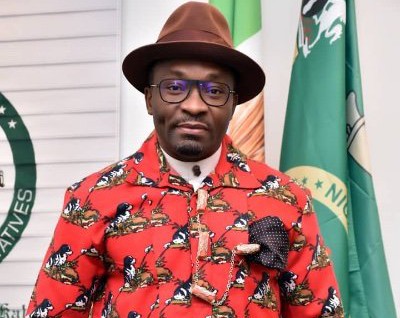Chinese companies must respect Nigeria’s labour laws – Deputy speaker
The Deputy Speaker of the House of Representatives, Benjamin Kalu has said Chinese companies operating in Nigeria must respect the country’s labour laws and treat citizens with dignity. He stated this when he received a Chinese delegation and some embassy officials in his office led by the Chairman, Standing Committee of Qingdau Municipal Peoples Congress, […]

Rep. Benjamin Kalu (APC, Abia), spokesperson of House of Representatives.
The Deputy Speaker of the House of Representatives, Benjamin Kalu has said Chinese companies operating in Nigeria must respect the country’s labour laws and treat citizens with dignity.
He stated this when he received a Chinese delegation and some embassy officials in his office led by the Chairman, Standing Committee of Qingdau Municipal Peoples Congress, Wang Luming in his office on Monday.
Kalu said, “While welcoming you and appreciating the values you are going to bring to the country, you have to be conscious of global best practices in line with our labour laws.
“We have observed that some of the companies operating in Nigeria are not complying with our labour laws especially as it concerns taking care of those working for them.
- Bello Vs EFCC: CJ directs Bello to present transfer request to court
- KAM steel company reacts over death of worker
“It is important that the embassy investigates all the Chinese investments in this country to establish whether they are complying with the labour laws.
“As it is at the moment, we have received a lot of petitions by workers in Chinese owned companies around the country complaining of abuse of provisions of our labour laws. We are currently investigating whether it is true or not. As we have more companies coming into Nigeria, we are strict with compliance with our labour laws.”
The deputy speaker, however, said the House was ready to deploy legislative backing to any positive collaboration with China as it remained the major trade partner as well as a driver of infrastructural development in the country.
In his presentation, the leader of the delegation, said they came to synergise with the Nigerian government in areas of technology, vocational education and talent training to help Nigeria solve its problem of unemployment in the country.
